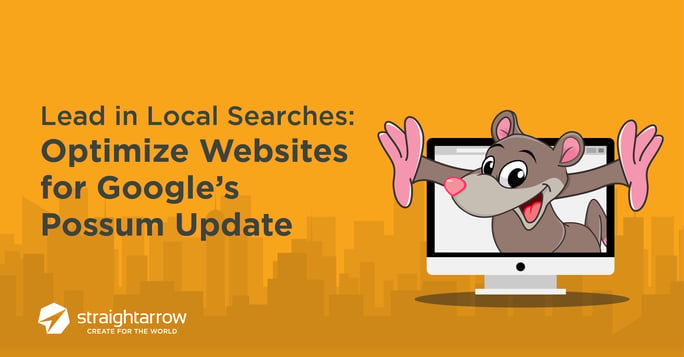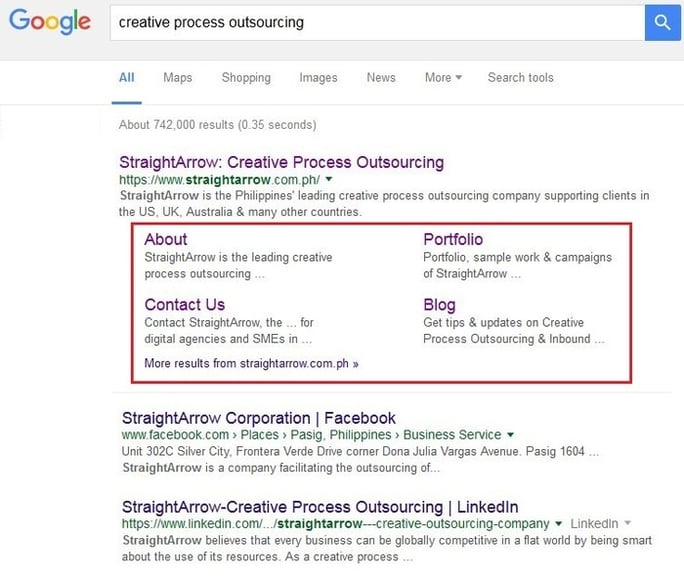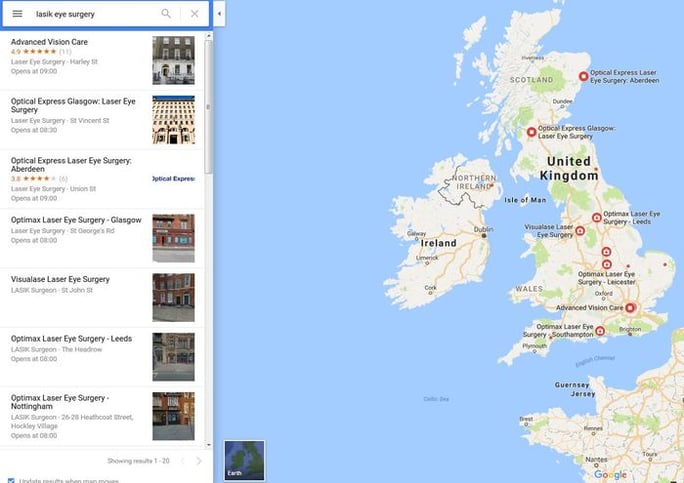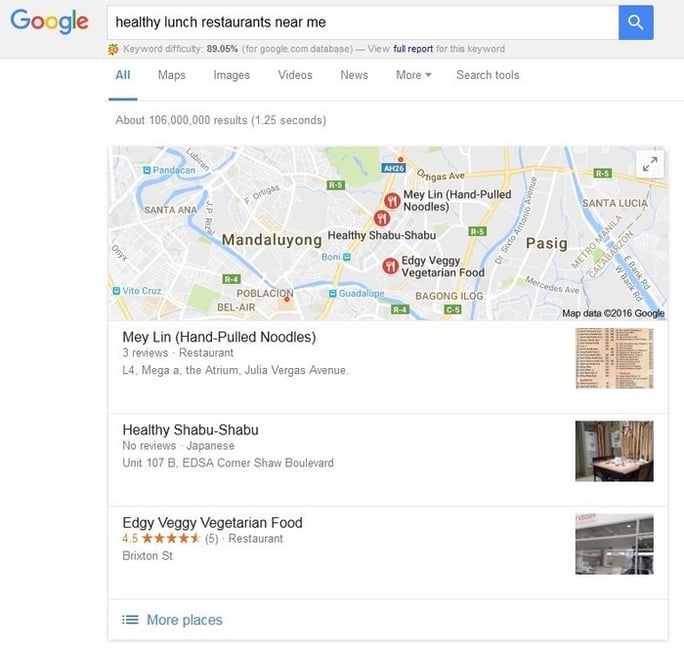
September saw two updates to Google’s search algorithms as part of their efforts to improve user experience. We’ve already covered one of them, Penguin 4.0, an update of the core algorithm that went live on September 23. However, As early as September 1, Google had also implemented the so-called Possum update, which is in its testing phase and hasn’t quite stabilized yet.
The curious name comes from how the update filtered results pages, making it appear certain businesses had been removed from listings--playing possum, as it were. What’s really going on is an alteration in the way the algorithm deals with the locations and affiliations of businesses and how these affect local search results.
Visibility based on areas serviced, not physical stores
Before, if a business didn’t have a store within a particular city’s boundaries, they would have a hard time ranking for geographical keywords in that city. Now, businesses like these have a better chance of ranking in cities even if they are technically outside city limits.
Companies that claim their businesses on Google Business listings can indicate the areas in which they offer their services in the service area settings. Doing so, businesses can rank more easily on the local searches of cities they operate in even if they’re based in the outskirts or fringes of those areas.

Businesses should also maximise the use of schema markup to get more out of their search listings. The structured data code inserted into websites allows Google’s search engine to categorize certain information of that website in a language it can understand. As a result, it allows you more control on the kind of information displayed on the results page. Used properly, this allows for more user engagement.
Businesses filtered by affiliation and address multiplicity
Prior to the update, companies could dominate keyword rankings in local searches by creating and listing multiple pages that all direct to the same website, phone number, or address. From the provider’s point of view, this is great; from the customers’, not so--it’s confusing and it limits options.
The Possum update responds to this by filtering companies based on addresses and affiliations. So entries in the same building, or whose affiliations tie them with another business of the same sort get filtered out, eliminating duplicates. Only the most relevant results are shown.

At present, Google won’t penalize you for multiple profiles or listings but this update does make focusing on primary listings a more effective strategy for businesses. Alternatively, you may mention relevant business information in your website’s content or in descriptions on business listings.
Target local markets by selecting specific search queries
Previously, if you searched for variations of a keyword, you would see similar results in the local pack. With the update rolled out, Google displays businesses different results in each variations.
Understanding your customer’s behavior is given an emphasis in ranking in local searches. Use variations of long tail keywords that existing and potential customers type into search bars. These keywords should be represented in your website’s content and local listings content.
Local searches now prioritize proximity, too. Even if you enter a location, like a city or town, into your search, the results displayed will vary depending on where you are searching from. In other words, results are affected by both what is asked, and the place you’re asking from. Google always shows the users businesses closest to them.

While most businesses can expect some traffic fluctuation due to the two recent updates, the current search environment also presents opportunities to update strategies. It’s always good to make sure that websites are aligned with goals and buyer personas, for instance. With the Possum update, however, businesses that monitor their customers’ physical locations and geographic behavior can reap further rewards. The principles are the same; there are just new standards for implementation, observation, and refining.
As Google Webmaster trends analyst John Mueller says, "Fluctuations in search are normal and a sign that our algorithms & engineers are working hard." In adapting to these changes, we contribute to a search experience that benefits both businesses and customers alike.
Get the latest updates on search engine marketing: subscribe to our blog.













Comments